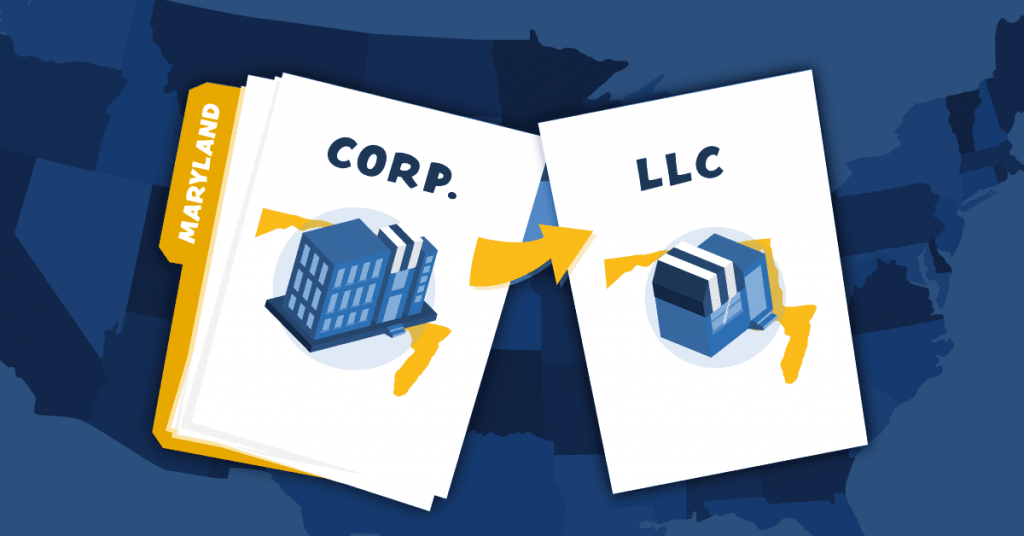Changing a Corporation to an LLC in Maryland

Q: How do I change my corporation to an LLC in Maryland?
Thank you to a customer from Maryland for that great question! Changing your entity type effectively changes the way your business is structured, as well as the way it’s taxed—which is often why business owners choose to change entity types. Here’s what to know about going from corporation to LLC in Maryland:
How are corporations and LLCs different?
One of the most important distinctions between a Maryland Corporation and a Maryland LLC comes down to taxes. As a corporation, you’ll file corporate taxes as well as individual shareholder taxes (this is known as “double taxation”). As an LLC, you can either be taxed as a partnership and receive “pass through taxation”—or you can be taxed like a corporation.
To read more about the differences between these two entities, check out Northwest’s page: LLC vs. Corporation.
How do I change a Maryland Corporation to an LLC?
The process of changing your entity type in Maryland is called conversion. According to MD Corp & Assn Code § 3-902 and §3-903, you must take two key steps before you can officially convert your corporation:
- Get approval from your board of directors
- File Articles of Conversion
What do I include in Maryland Articles of Conversion?
The Maryland Department of Assessments and Taxation does not provide a template for Articles of Conversion. However, your Articles of Conversion should include:
- Name of corporation and date of formation
- Name of new LLC
- Effective date, if different than your filing date (but within 30 days of filing)
- A statement declaring that your board of directors has approved conversion
- The method of converting corporate stock shares into LLC member interests
- Any other provision(s) that don’t contradict Maryland law
While some states require businesses to submit a plan of conversion along with their Articles of Conversion, Maryland does not.
Do I need to contact the IRS?
Most likely. When going from corporation to LLC, your default tax status will effectively go from “corporation” to “partnership.” In this case, your tax status will change, and you’ll have to Get a New EIN.
If you have any additional questions about how changing your entity type might affect your business—tax-wise or otherwise—you might want to reach out to a business attorney or tax adviser.



